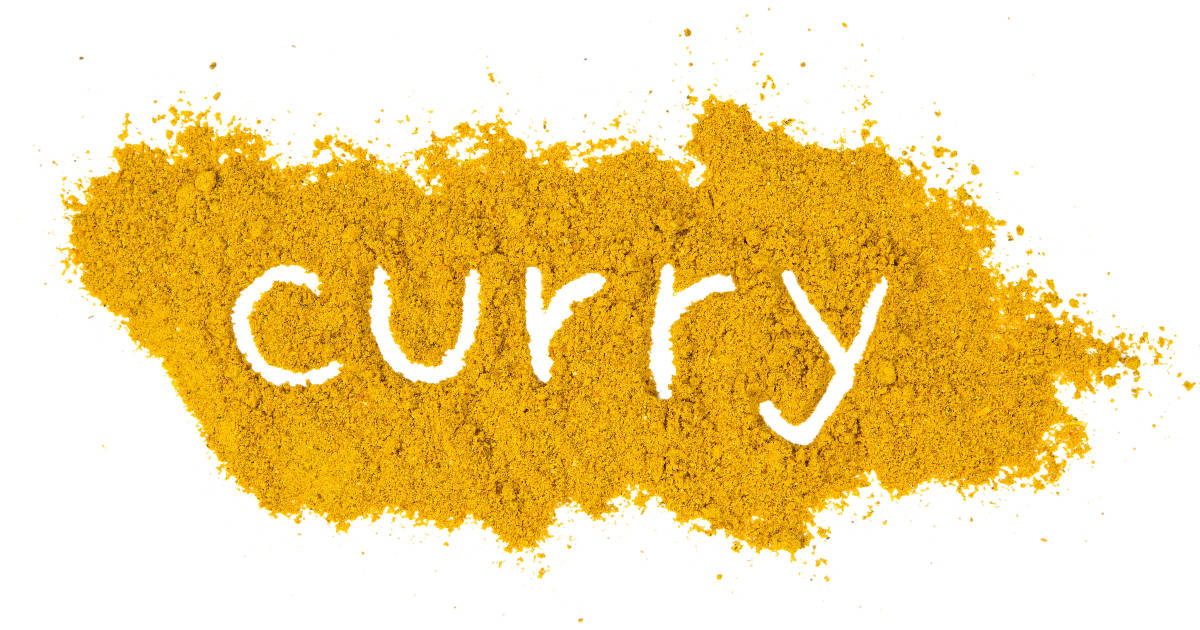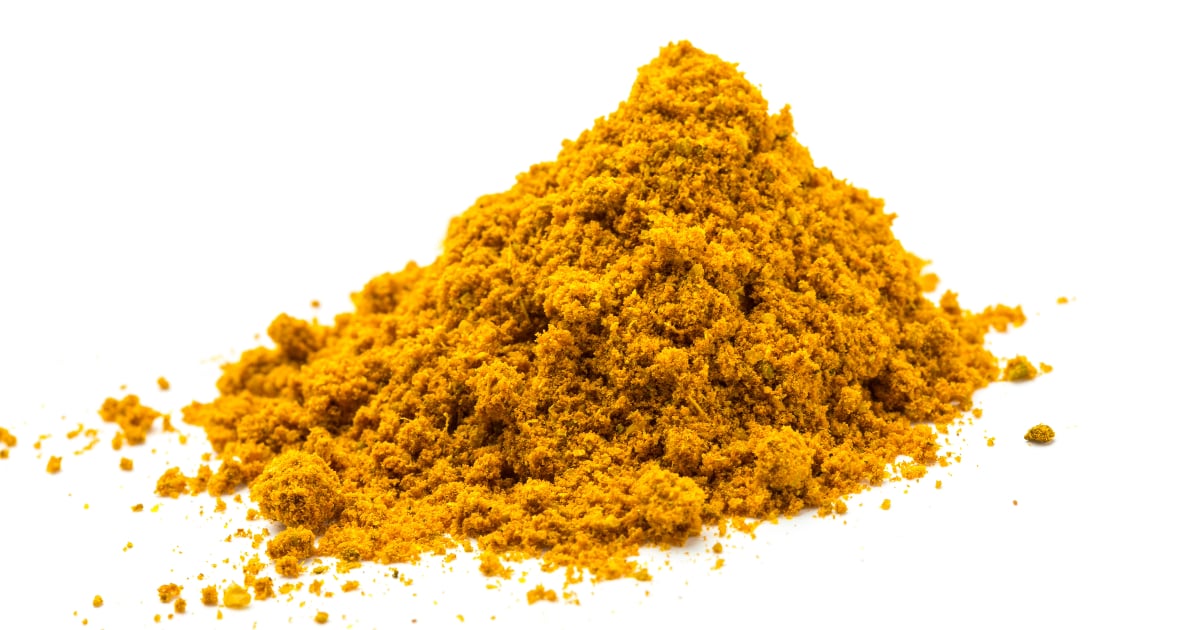Curry powder is a staple in cuisines around the world. But it's so much more than just a flavor enhancer. Curry powder contains a list of spices that offer some impressive health benefits.

Let us explore the components of curry powder and how they can benefit your health and well-being.
What Exactly is Curry Powder?
Curry powder is a blend of various spices used to flavor and add depth to dishes. There is no single definitive curry powder recipe. The specific spices and quantities used vary by region and personal preferences.
However, these are some of the most common spices found in curry powder:
- Turmeric - The vibrant yellow spice that gives curry powder its distinctive color. Turmeric contains curcumin, a powerful antioxidant with medicinal properties.
- Coriander - Dried coriander seeds impart a lemony, floral note. Coriander aids digestion and balances blood sugar.
- Cumin - Earthy, nutty cumin promotes digestion and is a good vegetarian source of iron.
- Fenugreek - Adds a slightly bitter, maple-like flavor. Fenugreek has antioxidant effects.
- Chili Pepper - Responsible for curry powder's signature heat and red hue. Chili peppers have antioxidant and anti-inflammatory benefits.
Other spices like ginger, black pepper, mustard seeds, curry leaves, cinnamon, cardamom, cloves, and bay leaves are also popular additions.
The exact blend of spices yields countless curry powder varieties, from mild and sweet to hot and savory. But no matter the specifics, curry powder packs some serious health perks.
6 Science-Backed Health Benefits of Curry Powder
Reduces Inflammation
Chronic inflammation is behind many diseases. The curcumin in turmeric is a potent anti-inflammatory compound that inhibits inflammatory enzymes like TNF-alpha and IL-6. The capsaicin in chili peppers also fights inflammation.
Curry powder's anti-inflammatory properties can help relieve joint pain and arthritis symptoms. The anti-inflammatory effects may even match over-the-counter medications like ibuprofen.
Supports Digestion
Many curry powder ingredients promote healthy digestion. Coriander, cumin, and turmeric act as digestive aids and soothe stomach ailments like diarrhea, nausea, and abdominal pain.
Curry powder's anti-inflammatory powers also help with digestive conditions involving inflammation like IBS and Crohn's disease. The spices support gut health by nourishing your intestinal microbiome.
Protects Heart Health
Curry powder contains nutrients and compounds that benefit cardiovascular function. For example, the curcumin in turmeric improves blood vessel function and lowers LDL "bad" cholesterol levels.
Spices like cardamom and basil dilate blood vessels, which reduces blood pressure. Maintaining healthy blood pressure and cholesterol protects against heart disease and strokes.
4.Helps Regulate Blood Sugar
Compounds in curry powder spices like turmeric, coriander, cumin, and cinnamon have demonstrated blood sugar-lowering effects.
Consuming curry powder regularly may aid glycemic control in people with diabetes. It can also help reduce your risk of developing high blood sugar and diabetes.
Boosts Immunity
Many curry powder spices contain antimicrobial properties. Coriander, in particular, fights off bacterial and fungal infections. This helps boost immunity against harmful pathogens.
Curry's anti-inflammatory powers also support the immune system. Chronic inflammation weakens your body's defenses. Curry powder's inflammation-quelling abilities strengthen overall immune function.
Detoxifies the Body
Curcumin alleviates damage caused by toxins and pollutants in the body. It enhances the liver's ability to naturally detoxify and remove waste products and chemicals.
Curry powder assists the body's detoxification process. Its antioxidant content scavenges free radicals and curbs oxidative stress caused by toxins.
Curry Powder Nutrition
In addition to the health-promoting properties of curry powder spices, this blend provides an array of vitamins, minerals, and antioxidants.
One tablespoon (6.5 grams) of curry powder contains approximately:
- Fiber: 1 gram
- Manganese: 8% DV
- Iron: 7% DV
- Vitamin K: 5% DV
- Vitamin E: 4% DV
- Magnesium: 3% DV
- Calcium: 3% DV
Curry powder is very low in fat, carbs, and calories. Using this flavor-packed seasoning allows you to add taste without excess calories or sodium.
Spice up your cooking with curry powder to add a nutritious punch!
Healthy Curry Powder Recipes

Curry powder is extremely versatile. You can add it to everything from stews to roasted veggies.
When making homemade curry powder, try this well-balanced blend:
- 3 Tbsp Coriander Seeds
- 2 Tbsp Cumin Seeds
- 2 Tbsp Turmeric
- 1 Tbsp Mustard Seeds
- 2 tsp Cardamom Seeds
- 1 tsp Ground Ginger
- 1 tsp Black Peppercorns
- 5 Cloves
To get the most out of curry powder's health benefits, focus on recipes packed with veggies and lean proteins. Some tasty ideas include:
- Curried Chickpea Stew - Chickpeas, sweet potatoes, spinach, and tomatoes simmered in a fragrant curry sauce.
- Tofu and Vegetable Curry - Cubed tofu and a mix of cauliflower, peas, and red bell pepper cooked in a coconut curry broth.
- Curried Lentil Soup - Protein-rich lentils and fiber-filled veggies in a comforting, curry-spiced broth.
- Curried Chicken Salad - Shredded chicken, apples, raisins, and almonds on a bed of leafy greens tossed in a curry yogurt dressing.
- Curried Roasted Cauliflower - Oven-roasted cauliflower florets seasoned with curry powder, garlic, and olive oil.
So spice up your recipes with the multidimensional flavors and health perks of curry powder!
FAQs
Is curry powder spicy?
Curry powder can range from mild to spicy depending on the amount and type of chili peppers used. Sweet paprika or a small amount of cayenne or chili powder add subtle heat. For spicier blends, more hot chilies are included.
What's the difference between curry powder and garam masala?
While both are spice blends, garam masala does not contain turmeric, which gives curry powder its signature golden color. Garam masala also typically uses more warming spices like cloves, cinnamon, and nutmeg.
What dishes can I use curry powder in?
You can incorporate curry powder into proteins, veggies, grains, legumes, soups, marinades, dressings, and more. It's excellent in Indian and Southeast Asian cuisine but works well in a variety of dishes.
Is store-bought curry powder healthy?
Pre-made curry powder can still provide benefits. But for the freshest, most potent spices, make your own blend. Store-bought versions can lose volatile oils over time.
Can I substitute curry powder for garam masala?
Not directly. Garam masala is a distinct blend and doesn't contain turmeric. For best results, use garam masala recipes calling for it and curry powder in recipes specifying it as an ingredient.
Conclusion
Curry powder provides an easy way to infuse dishes with flavor and wellness perks.
The combination of herbs and spices offers antioxidants to fight disease as well as compounds that reduce inflammation, improve digestion and heart health, balance blood sugar, detoxify the body, and more.

